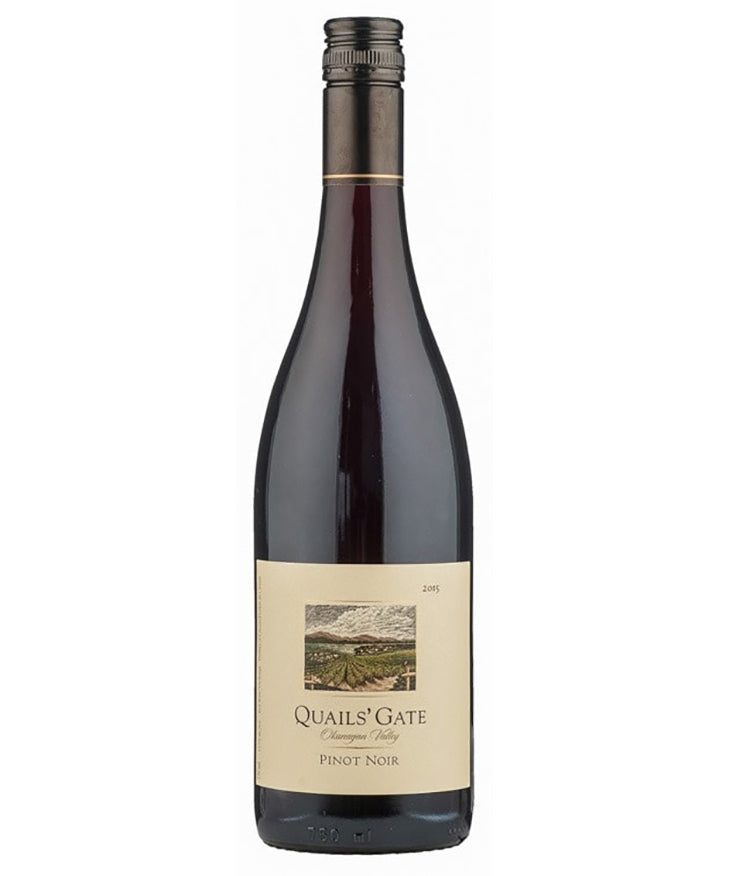Canada
Quails Gate Pinot Noir 2020
Couldn't load pickup availability
More Information
Share
Quails Gate Pinot Noir
Quails Gate Pinot Noir is their flagship red wine. The volcanic slopes at this Quails’ Gate vineyard site are ideally suited to this varietal. Made to be elegant with grace and finesse, this wine is made for wine lovers who desire a sophisticated style of Pinot Noir. As one of Canada’s leading producers of Pinot Noir, we ensure that our wines exhibit rich, complex fruit flavours, reminiscent of classic Burgundy wines, while showcasing the added elegance of New World winemaking techniques.
Quails Gate Pinot Noir is an expressive combination of bright juicy red berry fruit, violets, cloves and savoury dried herbs. Medium in body, the wine has a beautiful balance of fruit and acidity with polished tannins and a long, lingering finish.
We suggest pairing with roasted squash risotto, seared venison or braised pork with wild rice and roasted root vegetables. We recommend serving at around 15°C to enhance your tasting experience.
Owners of Quails Gate' the Stewart family are a third generation, Okanagan farming family who have been part of the community for more than a century.
They farm over 200 acres of vineyards and have been leaders in the development of Canadian viticulture practices. They have some of the most mature vinifera plantings in the country and they’re committed to continuous improvements to their vineyards and winery facility.
They planted their first vines in 1961, but their love affair with the soil goes back to 1908, when Richard Stewart Sr. (affectionately known as “Poppa Dick”) settled in the area. From working the land, he would go on to establish one of the valley’s most successful nurseries. Six decades later, his son, Dick, switched over to growing grapes. With the help of Dick’s eldest son Ben and his wife Ruth, Quails’ Gate Winery was founded in 1989.
At Quails’ Gate Winery, they’re committed to sustainability and environmental stewardship. Their philosophy has always been to do more with less and they achieve that through the application of low-impact viticulture practices.
Their holistic management approach to grapegrowing preserves the diversity of their natural surroundings without compromising the quality of fruit. Through the use of remote vineyard monitoring stations, they can target chemical applications; utilize drip irrigation to conserve water and operate fewer vehicles in the vineyard. They also use organic fertilizers and nutrients, which are supplemented by their composting program.
Quails Gate Pinot Noir - Hay Wines



